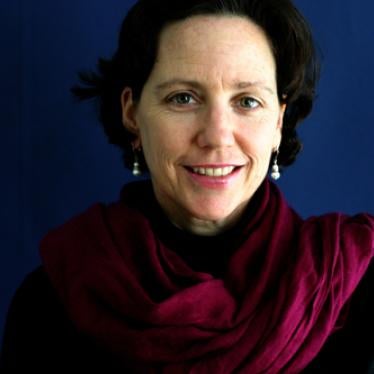In the early hours of 29 March a Land-Rover with Nigerian diplomatic number plates arrived at a border post linking north-east Nigeria with Cameroon. It passed through immigration and was on its way through customs when officials realised that among the passengers was one of the world's most wanted war criminals: Charles Taylor, the former president of Liberia. For those who care about justice this was a historic moment, and one many believed could never come.
For me, the news brought memories flooding back. I remembered May 1999 and a Sierra Leonean engineer called James, who described to me how, four months earlier, on the first day of a terrible offensive Taylor is accused of backing, a rebel unit stopped the car in which he, his wife and their six children were fleeing. After "accusing" them of supporting the elected president, a rebel announced that he would "teach them a lesson". He emptied his AK-47 into the family, killing all six children and wounding both parents. James told me how he begged his last child: "David, promise me you will survive this thing." The boy replied: "Dad, I promise you." He died hours later.
I also remembered trying to find out what had happened in a village called Nonkoba, and coming across a girl hobbling on grossly disfigured legs. She was seven and her name was Aminata. She explained how, months earlier, she had woken to the sound of gunfire but could not, in the darkness, find her mother. She hid under the bed as men walked through her house. They found her and bound her. Then they tied her to a stake, lit a fire under her feet and left.
I remembered, too, entering a windowless hospital in Freetown, the Sierra Leonean capital, searching for victims of a recent rebel attack. As my eyes adjusted to the dark I saw a patient in the corner, a girl of about 15. Her lower arms were gone, wrapped in white gauze. Then I saw another patch of white, this one on a young man whose arms were similarly wrapped. I kept turning: there were seven of them, all from one village, all victims of double amputation. I visited them three times to learn the litany of horrors their village had endured. The 15-year-old later gave birth to a child she could not embrace.
As the UN helicopter landed in Freetown carrying Taylor to trial and, we hope, justice, I felt an extraordinary sense of relief. Then another memory came: I remembered a conversation with a young man named Brima, whose father had been murdered in front of him by the same rebels who then hacked off his left hand. I asked if he thought the perpetrators should be put on trial, and Brima shook his head. "Justice is not meant for people like us - it just makes things worse. If we threaten the big men with trials, they will kill even more of us."
Taylor, the quintessential "big man", has made his first appearance before the Special Court for Sierra Leone. The court is backed by the UN, and if it is to make a difference, it must do more than pass judgment on the 11 people now before it. It must convince people like Brima and James that no one, no matter how big, is above the law.







